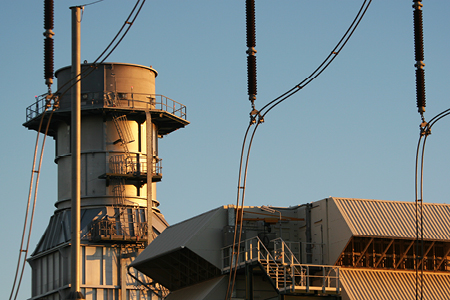
ERM’s Neerabup Power Station in Western Australia relies on major fossil fuel infrastructure and resource projects and is exposed to physical climate hazards
Power retailer and operator ERM Power doesn’t have the best track record when it comes to acting on climate change. In 2017 the company opted to pay $123 million in penalties rather than build or contract new wind and solar to comply with the Renewable Energy Target.
This year ERM hit the news again because its founder and majority shareholder Trevor St Baker keeps pushing a coal-powered agenda.
In recent years St Baker has been trying to snap up every coal power plant slated for closure through his private company Sunset Power, and in 2015 bought the Vales Point power station for AUD $1million from the NSW Government. He has also spouted dubious anti-renewable arguments, such as calling for severe restrictions on the output of wind and solar. Although St Baker no longer sits on ERM’s board (having stepped down in July 2017), his brother Phillip remains a non-executive director.
Climate spinning
Shareholders at the company’s annual general meeting (AGM) on 26 October in Brisbane wanted to know what ERM was doing to manage climate risk.
One asked if ERM’s business strategy is aligned to an energy projection outlook consistent with the 2°C goal of the Paris Agreement. The response was vague, the board saying that energy efficacy is ERM’s way of keeping global warming below 2°C.
When questioned if the company supports the Paris Agreement the answer was yes, with the board claiming ERM is a ‘strong advocate’ for action on climate change.
Such efforts presumably include articles like Buildings behaving badly: Who topped the Christmas List?, which was critical of other companies’ unnecessary power usage on holidays.
But considering the company has been fined $123 million for failing to build or contract renewable energy as per regulations, and, its biggest shareholder and founder Trevor St Baker’s continued criticism of renewable energy whilst advocating coal, the phrase ‘strong advocate’ seems a bit of a stretch.
A shareholder noted ERM had not said when or if it would disclose any climate scenario analysis that stress tests the financial resilience of the business and its assets against different global warming scenarios. The board failed to give any time-frame for such analysis to shareholders.
The directors made clear, however, their belief that ERM’s gas power plants are a positive contribution to the fight against global warming, claiming that the company is therefore part of the transition to a renewable future.
The concept of fossil gas as a “bridge fuel” to a stable climate has been revealed as a myth. Research shows that emissions from existing gas fields, alongside existing oil and coal development, already exceed carbon budgets aligned with the Paris climate accord. Similarly, analysis by The Institute for Energy Economics and Financial Analysis (IEEFA) concludes that gas assets are freighted with inherent risk.
It’s also known that power stations like ERM’s Neerabup gas fired station, which relies on other major infrastructure and resource projects, are exposed to physical climate hazards across their supply chains.
ERM seems to think it will be relatively unaffected by climate change, but it will be hard for shareholders to make a decision until the company does more than publish articles on power usage. Releasing scenario analysis to shareholders would be a first step in the right direction.
TAKE ACTION
Is your super invested in companies like ERM? Find out here.
